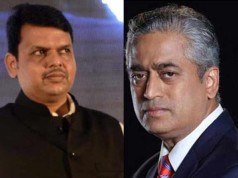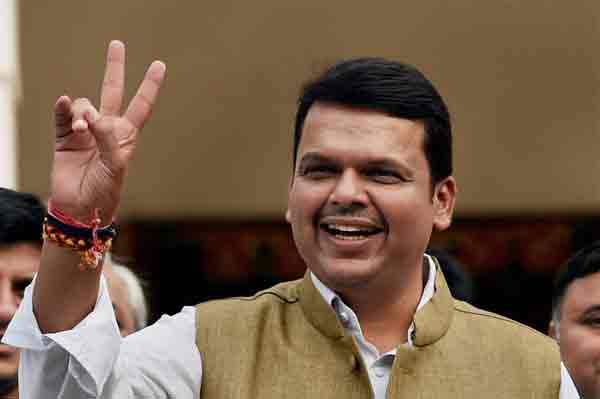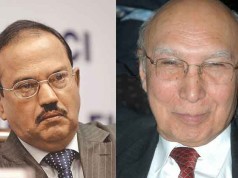By Barkha Dutt
Like so many other journalists who have known Tarun Tejpal and his family for several years — he also lives down the road from my home in Delhi — my first response to the horrific details emerging, still only bit by bit, was one of shock and disbelief.
At this moment, all one knew was the rather abrupt internal announcement that he was to step down for six months after what the magazine’s managing editor described as an “untoward incident”. It was only much later, when I was able to read the detailed, stomach-churning account of the written complaint by the young journalist who said she had been grievously violated by the man she saw as a paternal and professional mentor that I understood the gravity of what was happening. Disbelief turned to disappointment and disgust; now, as a woman, as a journalist, I was angry.
I felt absolutely sickened by the thought of this young reporter, still only in her early 20s, being assaulted and sexually abused, not once, but twice, by her boss, who, according to her written complaint, retained the arrogant audacity to send her casual text messages about it.
The hypocrisy was staggering. Here was a man who had always claimed to champion the cause of those who live on the margins of our society now accused of using his position of authority to transgress every boundary of decency, allegedly remembering in what he brazenly called “drunken banter” to warn the young woman that surrendering to the violence was the “easiest way to keep the job”.
Several senior lawyers have already explained that what Tejpal is charged with and chose to call — in an internal e-mail — an “awful misreading” and a “lapse of judgment” under the new amended law, qualifies as rape. That’s how serious the indictment was in the journalist’s first-person narration of what unfolded in an elevator of a Goa hotel.
In a week that saw the media chase two big stories with gender at their heart — the hidden harassment of women in the highest echelons of the judiciary and the alleged surveillance of a young woman in Gujarat, how could we possibly sustain our critique of politicians and judges with any credibility without now turning the lens sharply inwards?
Sexual assault is a crime, a grave breach of the law and any such complaint requires legal scrutiny and investigation. It is in its first set of responses to the complaint that Tehelka fell astonishingly short of the standards it likes to demand of others.
Barraged with probing questions from reporters, its managing editor initially described the issue as “an internal matter”, one that she argued had been resolved to the “satisfaction” of the young journalist at the heart of the storm. Her internal e-mail to her office colleagues announcing the temporary stepping down of its editor-in-chief failed to detail the gravity of the charges that had been made against him or the fact that they pertained to a complaint of sexual assault.
In fact, reading her mail or the appended mail of Tejpal, one got no sense of what the young woman had actually chronicled in her own account. The journalist quickly let it be known that far from being satisfied, she was actually “disappointed” with the response of her organisation. Her relatives and friends went on national television and let it be known that the allegation was of “grave sexual misconduct”.
If they hadn’t done so, and if her account had not leaked into the public domain, we may never have known how serious her charges were. She was also quick to point out that while the editor’s letters had been circulated widely among all employees of Tehelka, her letter had not been given the same wide audience.
By the mandate of the Supreme Court in what has come to be known as the Vishaka verdict, Tehelka should have already had an internal mechanism in place to process such complaints. Not just did the sexual harassment committee not exist, it was not set up as an immediate response to the complaint that was first received by the management on Monday.
Instead, it took sustained public pressure and repeated statements from the young journalist before an announcement that such a panel would be put together was made on Thursday night. Imagine now, how scathing Tehelka would have been while reporting such institutional gaps and insensitivities involving politicians or judges.
Now as this column goes to print comes news that the young woman’s narrative is being contested. According to Tehelka’s managing editor, Tejpal presented an “entirely different version” which she “over-rode” because of her “commitment to women’s rights”, and because “regardless of the differing versions he had transgressed as leader of the institution”.
She says the newly-appointed harassment panel will determine which version is true, with Tejpal claiming that what happened was consensual and not forced. She also admits that her first e-mail could and should have been worded more sensitively. But disappointingly, till the Goa Police filed an FIR booking Tejpal on charges of rape, Tehelka continued to maintain that a criminal case was not necessary, unless the victim herself filed one.
The controversy has lifted the lid on one of media’s worst kept secrets. We may like to judge others, but our own workspace can be just as hostile to women. For too long many of us have remained silent at the receiving end of harassment, not only out of fear, but because we don’t want to open another front in a profession where we already have to be better than the men to be considered equals.
But silence is the enemy of justice, and is no longer an option. Hierarchy cannot become a license for harassment. This is every woman’s battle.
The article was written by Barkha Dutt, Group Editor, NDTV and published first on the Hindustan Times. The views expressed by the author are personal.









